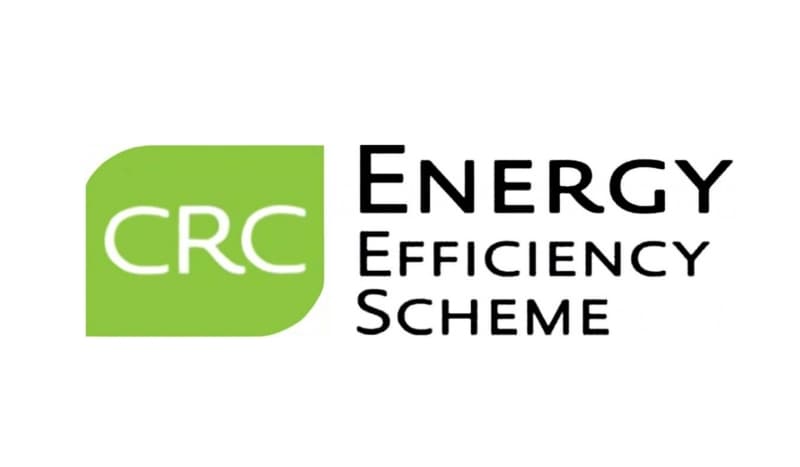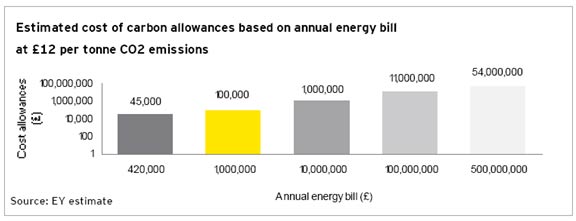CRC FAQs

The CRC scheme (formerly the Carbon Reduction Commitment) is a UK-only, mandatory carbon trading scheme that started back in April 2010. It applies to large non-energy-intensive organisations in the public and private sectors.
» What is CRC?
» Who will it affect?
» How do you comply?
» Why is it significant?
» Who does the CRC apply to?
» How does the CRC work?
» What happens if organisations exceed or fail to use their CO2 allocation?
» How will the Government monitor energy use?
» What happens to the excess revenue from the CRC?
What Is CRC?
The CRC is a UK-only, mandatory carbon trading scheme starting in April 2010. It is a central part of the UK Government's strategy to deliver the ambitious carbon reduction targets which it has set itself, and to promote energy saving and to a lesser extent renewable energy generation.
Organisations that qualify for the full CRC scheme will need to purchase annual allowances for each tonne of CO2 they emit. Initially allowances will be available from the Government but the intention is that a market will developer whereby those organisations that cut emissions fastest will have spare allowances to trade.
Who Will It Affect?
CRC will affect non-energy-intensive organisations that used more than 6,000MWh of electricity via half hourly meters in 2008 (likely to equate to an electricity bill in 2008 of approximately £500,000).
Organisations which fall below 6,000MWh of electricity in 2008 do not necessarily escape CRC completely; those with a half-hourly meter will be required to complete an information disclosure online.
How Do You Comply?
You will have to buy allowances to cover anticipated energy usage for each scheme year. During the introductory phase (April 2011 to March 2013), allowances will be sold at a fixed price (likely to be £12 per tonne of CO2). The first capped phase, with auctioning of allowances, will start in April 2013. Following annual reporting, a public league table will be published, against which a bonus or penalty payment will be calculated.
Why Is It Significant?
CRC is a potentially significant new area of cost, in terms of allowances to be bought (see below), the administration required to draw together all relevant data and of course the civil and criminal penalties in the event of non-compliance. In addition, many organisations are concerned by the PR implications of the public league tables - showing both CRC and renewable energy generation performance - which has introduced a reputational incentive to perform under CRC.

Who Does The CRC Apply To?
The CRC will apply to some 5,000 public sector and large commercial organisations and local authorities with half hourly energy metering (electricity) consumption of at least 6,000 MWh (6,000,000 kWh/"units") per annum which is roughly equivalent to an annual electricity bill of £500,000 or the consumption of 1,500 homes.
How Does The CRC Work?
Organisations will need to convert their electricity and other energy usage (excluding transport) into CO2 emissions. The Government will provide standard formulae for this calculation. These CO2 emissions will be the organisation's CO2 allocation.
Organisations will need to purchase sufficient CO2 allowances from the Government each CRC year. These will be sold at a fixed rate of £12/tCO2 up to March 2013, after which annual auctions will determine the price, as total emissions under CRC become capped. Each CRC year organisations must show that they have sufficient allowances to cover the amount of carbon they emit.
What Happens If You Exceed Or Fail To Use A CO2 Allocation?
If organisations exceed their allocation they will have to purchase surplus allowances from other organisations within the CRC which have performed well and have allowances to sell. It follows that those organisations with surplus allowances can sell them to other organisations within the CRC. It is envisaged that a CO2 allocation trading scheme will develop. Allowances cannot be traded between organisations until April 2011.
In April 2013 the "capped" phase of the CRC will commence. The Government will take advice from the Climate Change Commission and will cap the total allocations it sells to ensure that overall emissions and allowances are reduced accordingly. This will help the Government meet its target of at least a 26% reduction in CO2 by 2020.
How Will The Government Monitor Energy Use?
At the end of each CRC year, organisations will have to self-certify their energy use. The Government is going to run an independent audit of approximately 20% of organisations each year and will publish CRC league tables to show how organisations have performed under the CRC. This information will be available to the public.
Non compliance with the CRC could result in an organisation being fined in addition to the cost required to purchase the necessary CO2 allowances.
What Happens To Excess Revenue From The CRC?
The CRC will be revenue neutral to the Treasury. Any revenue obtained by the Government from selling allowances will be given back to organisations in the CRC based on their annual emissions since the start of the CRC. The bonuses/penalties received by organisations will be governed by their position in the CRC league tables.
You Might Like
What Is Carbon Reduction Commitment?
Heard of CRC? The Carbon Reduction Commitment is an emmissions trading scheme for UK businesses to reduce the amount of CO2.Sub-Fertility Impacts 3.5 Million People In The UK
Did you know that sub-fertility now affects around 3.5 million people in the UK alone. Reducing stress and getting sound advice are key to helping to reduce this number.Do I Need Winter Tyres?
As the temperature drops, whether you need winter tyres or not is a big annual question many drives ask themselves. See our guide to see why you do!Social Media And Mental Health
90% of young people in the UK use social media. But what impact does it have on their mental health?We cover the latest research and recommendations.Vaping Vs Traditional Smoking
Is vaping a good alternative to smoking? Find out more about vaping and how it could help you.
Useful Websites
- npower
Through the combined strength of MEB, CALORTEX and National Power, offer unrivalled choice and excellent service for all your gas and electricity needs. - My Protein
From protein to Amino Acids, get high quality supplements from this leading sports nutrition brand. Over 2000 supplement products at the best prices on the market plus free UK delivery. - BSW Building Services
Renewable Energy experts in the provision of hot water and central heating to both domestic and commercial properties in Surrey, Sussex, Kent and Hampshire. - Light Bulbs
Welcome to Litebulbs.co.uk, the specialist online retailer of LED energy saving light bulbs and lighting including GU10 LED & MR16 LED. - Saving Light Bulbs
Saving Light Bulbs stock a wide range of Energy Saving Light bulbs and fittings throughout the UK. - Apollo Blinds
Apollo Blinds brings a particular skill in designing and installing creative, practical window coverings, blinds and shutters. - Add Your Website Here